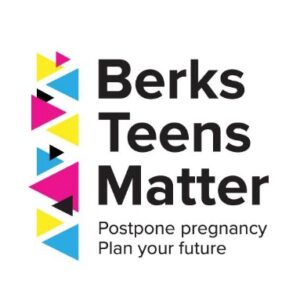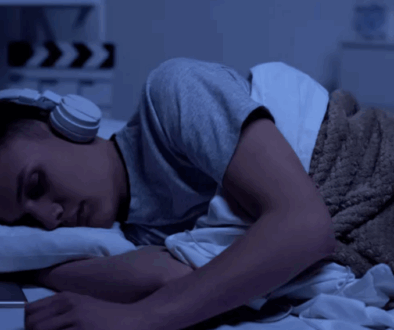The Lowdown on Sex-Education
By Heather Ulrich
Comprehensive sexuality education, or CSE, has become something of a buzzword in recent years. But what exactly does it mean? Does CSE equal the “Birds and the Bees”? Well, yes and no.
Breaking Down CSE
Yes. CSE does include medically accurate information about sex and sexuality. And no, that is not all that it is about. Quality CSE ensures that youth receive factual information about their bodies so that they are empowered to make safe decisions surrounding sex, sexuality and everything in between. The “in-between” includes things like healthy relationships, consent, boundaries, body positivity, and reducing shame and stigma around these topics.
Still not sure you’re not sold on CSE? Maybe you think that these conversations surrounding sex should happen in the home. Guess what? We believe that, too! You see, Berks Teens believes the best sex education starts in the home.
In fact, roughly 70% of young people report that it would be easier to postpone sex if they were able to have open conversations with their parents or caregivers on the topic. And while Berks Teens is happy to help by both supporting parents and youth, we always stress that we are not a replacement for your at-home discussions.
Talk About It?
Listen, we know all too well that sometimes these conversations surrounding sex and sexuality can be really challenging for parents… and we totally get it! It can feel incredibly uncomfortable to even broach the subject, especially if you didn’t have parents who knew how to broach it with you. Maybe you’ve tried several times to start the convo but your Teen is NOT having it (we get it…–Teens!). And sometimes our own life experiences can make it really hard to initiate these conversations. The bottom line is that having these conversations may not be easy but just having them at all really can make a difference. Most importantly, we are here to help!
Consent And The Toddler
So how young is too young to start talking with our kids? The answer is there really isn’t a “too young”. The truth is that the best CSE starts with laying the foundation during the toddler years. And no, we’re not buzzing on with them about the “Birds and the Bees” just yet, but are starting age-appropriate conversations that model consent, proper anatomical names of body parts, and keeping shame out of the equation. And as your child grows, so too can the complexity and depth of your conversations.
You may still be skeptical about starting sex ed from a young age but think of it this way, helping our children set boundaries and understand when someone has crossed theirs is one of the most important tools we can give them in life. It just so happens this is one of the foundational skills taught in comprehensive sex education –healthy relationships, boundaries and consent. It helps to keep them empowered and most importantly, safe.
When young people know that there is nothing shameful about having a penis or vagina, and that there are no such things as safe secrets about their body parts… they are much more likely to come to their parents, in the event that something does happen to them.
The Cost of No Sex Ed
So, we’ve talked about the importance of quality CSE, but what about the negative observable effects when kids aren’t offered it? Well as you can guess, kids are going to talk about sex whether you start the discussions or not. We live in a world of instant information on our phones and devices. And then there’s just the old fashioned “peer conversations” at the lunch table, on the bus or playground.
Although it might seem tempting to just go with the “out of sight, out of mind” approach, Berks Teens would like to remind you that this is where misinformation and risky decision making can creep in. Research has shown that kid’s whose parents who talk to their children openly and honestly about sex, actually delay having sex. Not having these conversations opens the door to your child not feeling comfortable advocating for their body, the transmission of STIs and of course, unplanned pregnancy.
Data shows that teen pregnancy cost Berks County tax payers a total of $11,909,278 in 20171. And we know that teen mothers have a high school dropout rate about 50%2. So really, a lack of sex education at home and in school does ends up costing us more than we might like to think.
Sex Ed Around the Globe
Let’s take a look at data surrounding teen pregnancy on a global level. In the Netherlands, Dutch schools mandate CSE for all students, occurring at every grade level. The result? This country has one of the lowest instances of teen pregnancy. One 2015 study finds the Netherlands to have the 4th lowest teen pregnancy rate out of 50 total countries3.
In the United States, it is not federally mandated for sexual education to be offered in public schools. It is left to the individual states and school districts. Moreover, the programs that are taught must heavily advocate abstinence as the only option for young people. Although abstinence is an important part of CSE, and we want teens to understand all of the positive and negative things that can go along with sex, and make choices and decisions after having been given all the information.
In fact, we know that teens who receive comprehensive sexuality education postpone sex more so than their peers who receive abstinence only sex ed4. Abstinence-only and fear-based programs do not keep young people from having sex. And they’re ineffective.
In Our Neighborhood
At a local level, Reading Pennsylvania’s teen birth rate is almost four times higher than the state’s average5. In 2014, Berks Teens (formerly Berks Teens Matter) was formed as an initiative to combat the high teen pregnancy rates in Berks County, with a heavy emphasis in Reading.
Our goal was to reduce teen pregnancy by forty percent by the year 2022. This year, the data showed we had reached, and even exceeded, that goal. In June, we took a moment to celebrate exceeding the goal and sharing it with our community. Teen pregnancy rates have rescinded by almost forty-nine percent in Berks County.
Many community partners, individuals, non-profits, and specialized programs have worked to help reduce unplanned teen pregnancy and worked along side Berks Teens as a collective to achieve this goal. That said, Berks Teens recognizes the work cannot stop.
To truly be successful, we must use this momentum to continue to reach young people across our county. Many of youth have had little or no access to comprehensive sexuality education. We will forge relationships with policy makers, emphasize the importance of quality and inclusive sexuality education in every school, and work hard at every level because our youth deserve it. We believe that comprehensive sexuality education has the power to create social change.
Join our mission, be part of our work groups, and tune into our social media pages. Help keep the discussions around sexual health flowing in your household and with your kids. And if you get stumped on a topic, remember we’re here to help.
References:
- Power To Decide
- Perper K, Peterson K, Manlove J. Diploma Attainment Among Teen Mothers. Child Trends, Fact Sheet Publication #2010-01: Washington, DC: Child Trends; 2010.
- Sedgh, G., Finer, L. B., Bankole, A., Eilers, M. A., & Singh, S. (2015). Adolescent pregnancy, birth, and abortion rates across countries: Levels and recent trends. Journal of Adolescent health, 56(2), 223-230.
- https://www.publichealth.columbia.edu/public-health-now/news/abstinence-only-education-failure
- https://www.health.pa.gov/topics/HealthStatistics/VitalStatistics/BirthStatistics/Pages/birth-statistics.aspx

Heather Ulrich (she/her)
Project Director for Berks Teens
An Initiative of Co-County Wellness Services

The purpose of Berks Teens is to work with public and private stakeholders to develop a coordinated plan of sustainable programs and practices that will reduce teen pregnancy through improved education and access, resulting in the long-term well-being of individuals, families and the overall Berks County community.
Featured image credit: The People Speak! via Flickr



